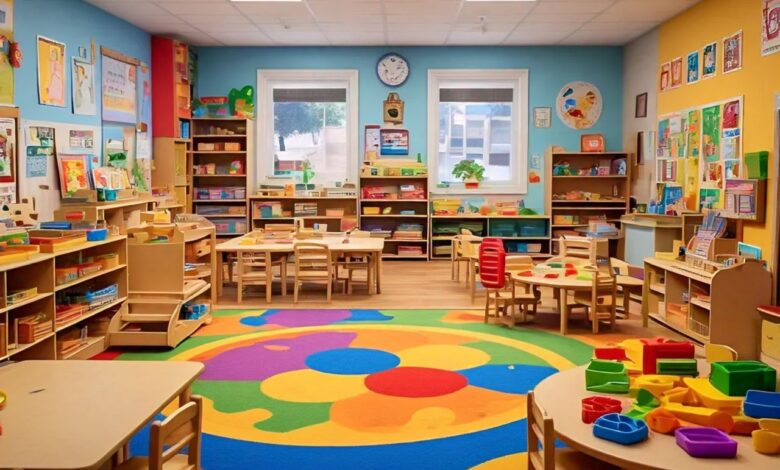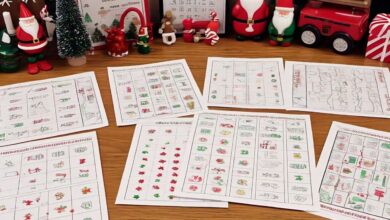The Importance of Social-Emotional Learning in Preschool: Building Strong Foundations for Lifelong Success

Social-emotional learning (SEL) is a basic component of early childhood instruction that centers on making a difference children create key aptitudes like self-awareness, self-regulation, social mindfulness, and relationship building. In preschool, SEL plays a basic part in forming youthful minds, advancing enthusiastic insights, and cultivating positive intelligent with others. As guardians, teachers, and caregivers, understanding the benefits of SEL in preschool can offer assistance guarantee that children are well-prepared for both scholastic and social victory in the a long time to come.
What is Social-Emotional Learning in Preschool?

Social-emotional learning in preschool alludes to the prepare by which children learn to get it and oversee their feelings, create compassion, set up solid connections, and make capable choices. This handle makes a difference youthful children construct enthusiastic flexibility and a sense of sympathy, which are crucial for victory in school and in life.
Preschool is a vital time in a child’s improvement when they are starting to frame social abilities and passionate insights. By presenting SEL at an early age, children can create the apparatuses they require to explore complex social situations, construct positive connections, and lock in in self-regulation when confronted with challenging situations.
Why Social-Emotional Learning Things for Preschoolers
- Passionate Mindfulness and Self-Regulation
One of the key perspectives of SEL in preschool is passionate mindfulness. Preschoolers start to recognize and name their feelings, whether it’s bliss, outrage, dissatisfaction, or fervor. With appropriate direction, children can learn how to express these feelings in fitting ways, or maybe than acting out impulsively.
Self-regulation, a center component of enthusiastic insights, is another advantage of SEL. When children are instructed procedures to control their feelings and behaviors, they gotten to be way better prepared to oversee push, dissatisfaction, and uneasiness. This capacity to self-regulate not as it were makes a difference children oversee their feelings in the classroom but moreover in social settings, setting them up for victory in future scholastic and individual relationships.
- Building Positive Connections and Social Skills
Preschoolers are learning how to connected with their peers, share toys, take turns, and communicate viably. SEL gives children with the aptitudes vital for building positive connections with others. These abilities incorporate dynamic tuning in, compassion, and collaboration, which are fundamental for cultivating companionship and teamwork.
When children create solid social aptitudes, they gotten to be more certain in their intuitive with others. They learn how to get it and regard distinctive viewpoints, explore clashes gently, and appear thoughtfulness toward others. These foundational social aptitudes make an environment of believe and participation, which upgrades the in general learning encounter.
3 Advancing School Readiness
Research has appeared that children who lock in in social-emotional learning are more likely to flourish scholastically. SEL makes a difference children create vital aptitudes that are basic for school status, such as taking after headings, remaining centered, and working well with others. By joining SEL into preschool educational module, teachers can bolster children’s cognitive, passionate, and social development, making them more arranged for future scholarly challenges.
Moreover, children who have enthusiastic insights are way better prepared to handle mishaps and challenges. Whether it’s battling with a troublesome errand or overseeing clashes with classmates, SEL instructs children to drive forward and approach issues with a positive mindset.
- Cultivating Compassion and Enthusiastic Connections
Empathy is a foundation of social-emotional learning. In preschool, children start to get it that other individuals have considerations, sentiments, and encounters that may be diverse from their possess. By creating compassion, children learn to interface with their peers, offer offer assistance when required, and explore social intuitive with benevolence and compassion.
Fostering enthusiastic associations in preschool not as it were benefits the person child but too makes a difference make a steady, caring classroom community. Children who are compassionate are more likely to offer passionate bolster to their classmates, making the preschool environment a secure and sustaining put for everyone.
How to Back SEL in Preschool
Parents and educators can take several practical steps to support SEL in preschool settings:
- Parents and teachers can take a few commonsense steps to back SEL in preschool settings:
- Show Enthusiastic Insights: Children learn by watching grown-ups. When guardians and instructors demonstrate passionate direction, compassion, and successful communication, children are more likely to embrace these behaviors themselves.
- Make a Secure and Sustaining Environment: Guarantee that the preschool setting is a space where children feel comfortable communicating themselves without fear of judgment. A positive and comprehensive environment empowers sound passionate development.
- Coordinated SEL into Day by day Exercises: SEL doesn’t have to be a partitioned lesson; it can be inserted into ordinary classroom exercises. Whether through narrating, gather play, or organized recreations, there are endless openings to hone social-emotional skills.
- Empower Problem-Solving: Offer assistance children create problem-solving abilities by directing them through settling clashes with peers or overseeing feelings amid challenging situations
FAQs for a web journal on Social-Emotional Learning (SEL) in Preschool:
- What is Social-Emotional Learning (SEL) in Preschool?
Social-Emotional Learning (SEL) in preschool alludes to instructing youthful children the aptitudes they require to recognize and oversee feelings, construct solid connections, and make mindful choices. It centers on cultivating compassion, self-awareness, and interpersonal aptitudes in a formatively suitable way.
- Why is SEL critical for preschoolers?
SEL is pivotal for preschoolers since it lays the establishment for scholastic victory, enthusiastic strength, and social competence. Early advancement of these abilities makes a difference children explore challenges, collaborate with peers, and construct positive self-esteem.
- What are a few illustrations of SEL exercises in preschool?
SEL exercises in preschool incorporate role-playing to get it feelings, storytime centering on compassion, gather recreations that empower collaboration, and mindfulness works out to move forward self-regulation. These exercises are planned to be fun and locks in whereas instructing important life skills.
- How can guardians bolster SEL at home?
Parents can back SEL by modeling positive behaviors, empowering open discussions approximately sentiments, and making schedules that cultivate passionate security. Perusing books almost feelings and practicing sympathy amid family intelligent are moreover viable ways to improve SEL.
- What are the benefits of actualizing SEL in early childhood education?
The benefits of SEL incorporate made strides enthusiastic control, more grounded social aptitudes, way better scholarly execution, and diminished behavioral issues. Preschoolers who lock in in SEL programs are more likely to create into sympathetic, certain, and well-adjusted individuals.
Conclusion
Social-emotional learning in preschool is vital for setting the organize for a child’s scholastic and individual victory. By centering on enthusiastic mindfulness, self-regulation, relationship-building, and sympathy, preschool teachers can offer assistance children create the passionate insights they require to flourish in school and past. As guardians and teachers, it is imperative to prioritize SEL in early childhood instruction to construct solid, well-rounded children who are arranged for the challenges of tomorrow. Through supporting enthusiastic development, we can enable the following era to be certain, compassionate, and strong people.


